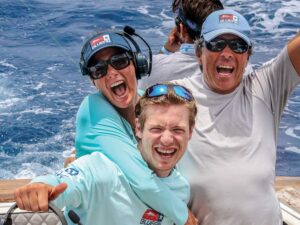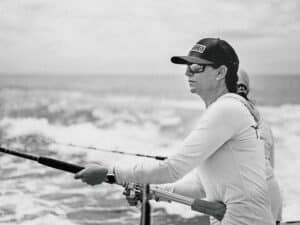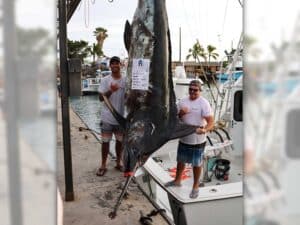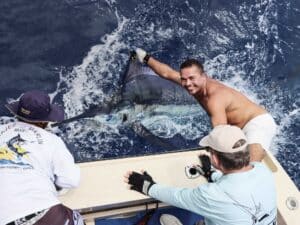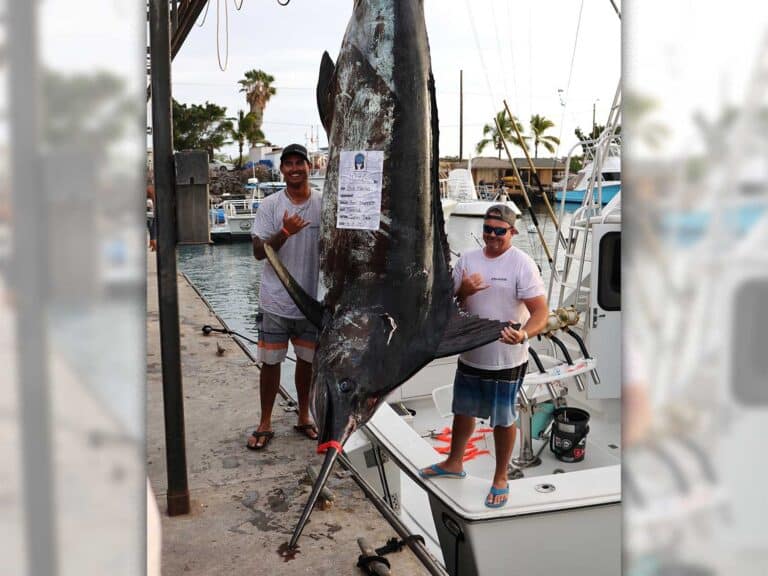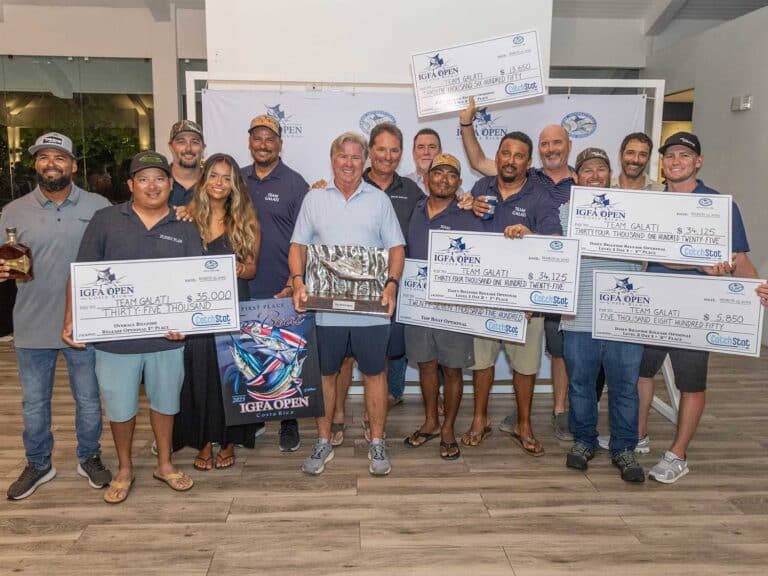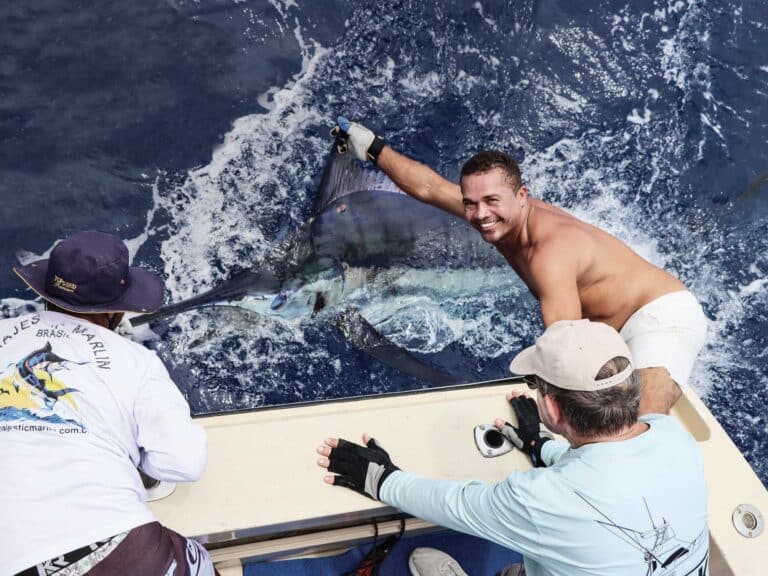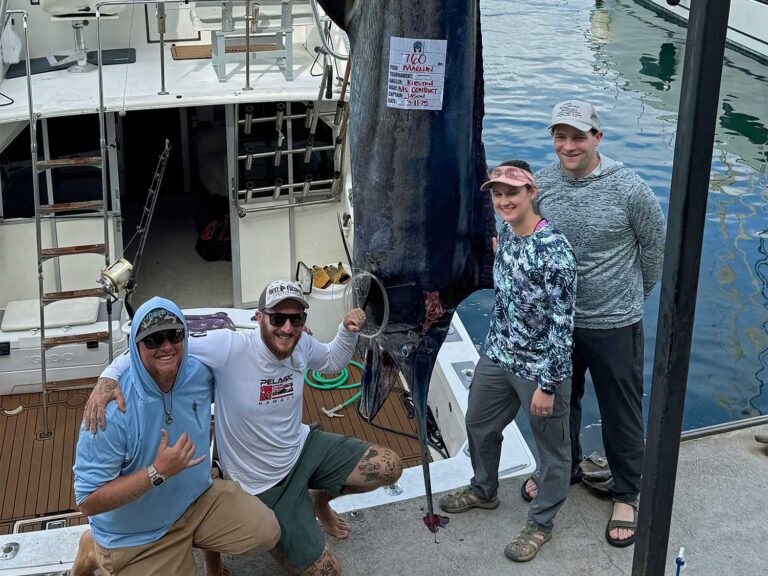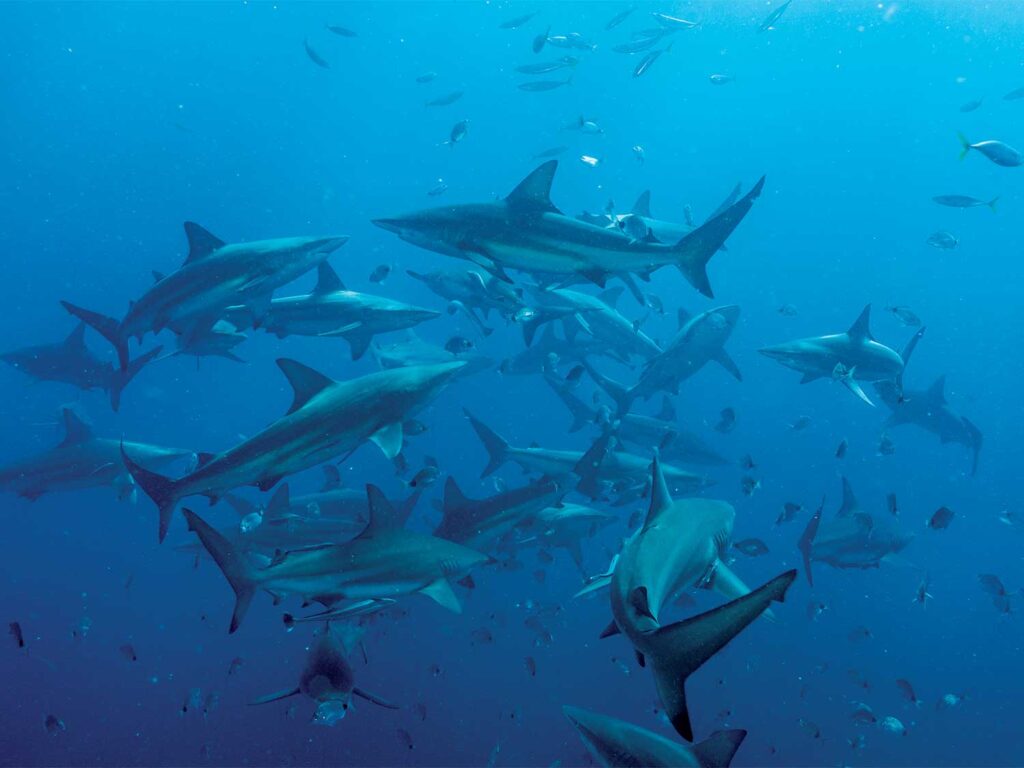
Special delivery: Sign up for the free Marlin email newsletter. Subscribe to Marlin magazine and get a year of highly collectible, keepsake editions – plus access to the digital edition and archives.
Encounters with sharks—and subsequent issues with depredation—have been a part of sport fishing long before Hemingway’s fictional Santiago won his battle with a giant blue marlin, only to lose most of his prize at boatside as immortalized in his literary classic The Old Man and the Sea. But these events are becoming more frequent, to the point in certain fisheries where it’s nearly assured that you’ll lose at least a significant portion of your catch to sharks. It’s grown to the point where even these anecdotal encounters reported by fishermen have gotten the attention of the scientific and political communities. Simply put, anglers are demanding action.
The Webster’s definition of depredation is “1: to lay waste, plunder, ravage. 2: to engage in plunder.” That’s certainly fitting to what’s currently happening in places like North Carolina’s famed yellowfin tuna fishery—a mainstay of its extensive charter fleet—as well as South Florida during sailfish season or the Gulf of Mexico’s red snapper fishery. Sharks are drawn to an area by the sound of boat engines and quickly learn to take advantage of hooked tuna, snapper or sailfish, turning them into an easy meal. In addition to the frustrations that sharks cause, there is also a worry that they can have a significant negative impact on many different fisheries, leading to stricter regulations intended to offset or avoid shark interactions, as well as losses among the local charter fleets. After all, why spend hundreds or thousands of dollars to go fishing only to see your prized catch ripped to shreds right before your eyes?
While their populations were previously reduced due to overfishing, management efforts have succeeded in rebuilding many shark species under the Magnuson-Stevens Fishery Conservation and Management Act. Conflicts between anglers and sharks are expected to further increase as shark populations continue to improve, requiring fishery managers and scientists to collaborate with the recreational fishing community on solutions that incorporate new management policies, perhaps also including scientific advances as well.
As a leader in this fight, the American Sportfishing Association believes that fishery managers and the recreational fishing community must work together on solutions that proactively address shark depredation, politically and in several other areas. In October 2022, ASA outlined four pillars to address shark interactions in both the short and long term: education, management, policy and research.
Education can be an effective way to help anglers avoid sharks, although in some cases depredation might be inevitable. Because shark interactions are increasing, teaching anglers how to avoid sharks and respond to them in the short term is crucial.
Management is another critical aspect of a comprehensive mitigation strategy. NOAA Fisheries and other fishery managers should consider how shark-mitigation policies can affect fisheries, and vice versa. A holistic approach that balances species interactions could be beneficial, allowing anglers to turn discards and fish damaged by sharks into retained fish. While there might be some interest in increasing harvests for sharks, this should be done only if the stocks are healthy and supported by sound science. Reopening the floodgates of widespread commercial shark fishing isn’t the answer at this point.
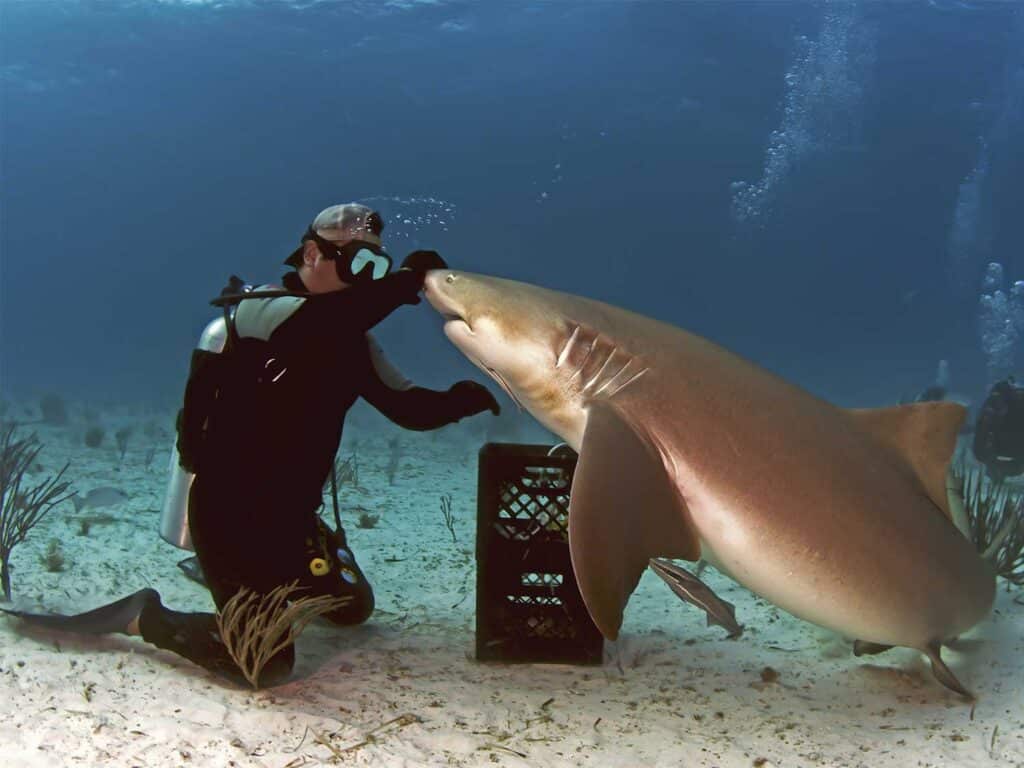
Policy changes are necessary to limit shark depredation. One potential reason for increased incidents is that sharks are learning to associate boats with a free meal. In this, the ASA supports amending the Magnuson-Stevens Fishery Conservation and Management Act to prohibit shark-feeding tours nationwide, building on the current bans in Hawaii and the western Pacific. Indiscriminate commercial fishing for sharks should be avoided to prevent increased bycatch of important recreational species and other protected species.
Research is essential to understanding the frequency of shark encounters and why conflicts with fishing occur. More research is needed to identify the species involved, the physiological cues that lead sharks to become habituated to people, how angler behaviors and regulatory frameworks influence shark interactions, and how to prioritize shark-stock assessments to evaluate sustainable harvest opportunities. Research should also focus on developing new techniques and strategies to limit shark interactions, including the use of deterrents.
In June 2023, legislation was introduced in the US House of Representatives to help mitigate this issue, with the goals of improving communication and coordination across the fisheries management community on shark depredation as well as setting a path forward to reduce the frequency of these interactions. US Reps. Rob Wittman, Darren Soto, Garret Graves and Marc Veasey—a bipartisan group representing Virginia, Florida, Louisiana and Texas—introduced HR 4051, the Supporting the Health of Aquatic systems through Research, Knowledge and Enhanced Dialogue Act—known as the SHARKED Act—in the US House of Representatives. The bill focuses on shark depredation by establishing a task force comprised of fisheries managers and shark experts responsible for improving coordination and communication across the fisheries management community. The task force will identify research priorities and funding opportunities to limit depredation throughout the country.
Read Next: Here’s an update on shark depredation regulations.
In early February 2024, he House of Representatives passed the SHARKED Act. “This action by the US House of Representatives to unanimously pass the SHARKED Act is a demonstration of the breadth of support for this important bill,” says Mike Leonard, ASA’s vice president of government affairs. “Saltwater recreational fishing is a huge part of the nation’s economy, contributing $73.8 billion in sales impacts and supporting 487,000 US jobs. Our thanks to House Natural Resources Committee Chair Bruce Westerman, ranking member Raul Grijalva and other members of the committee for their approval of the SHARKED Act. As anglers throughout much of the United States are increasingly encountering sharks and losing fish in the process, this is a critical step toward identifying meaningful and responsible steps to mitigate this complex challenge. We are grateful to Reps. Wittman, Soto and the other bill sponsors for advancing this act, which will help develop thoughtful and meaningful ways to mitigate this complicated challenge facing us.”
Indeed a complex problem, mitigating shark depredation requires a multifaceted approach that respects the intrinsic value of sharks while addressing the concerns of fishing communities. The SHARKED Act is a significant first step. Once passed by the Senate and signed into law by the president, the act directs NOAA to create a task force to study shark depredation, where the real work toward a solution will then begin.
